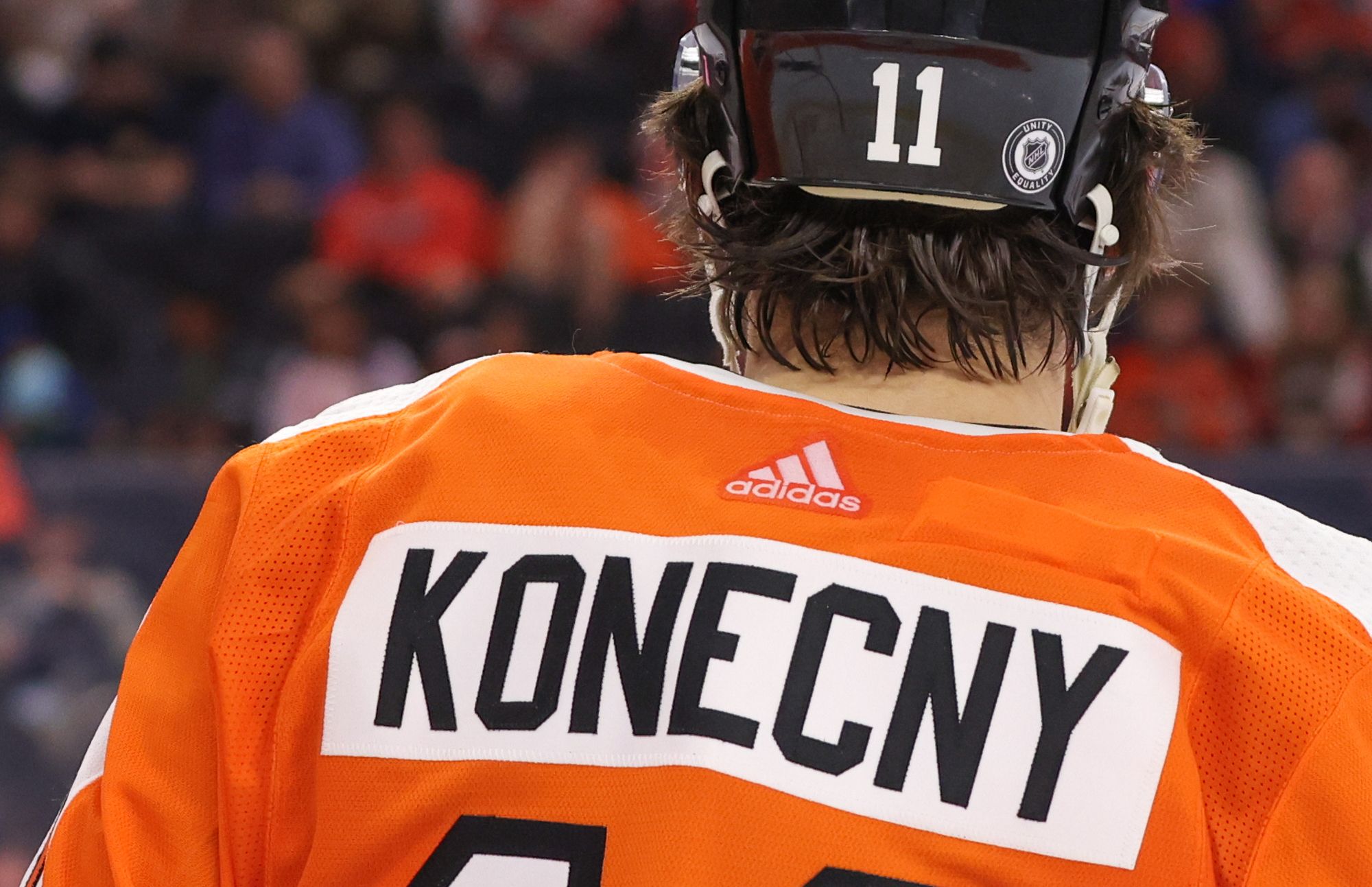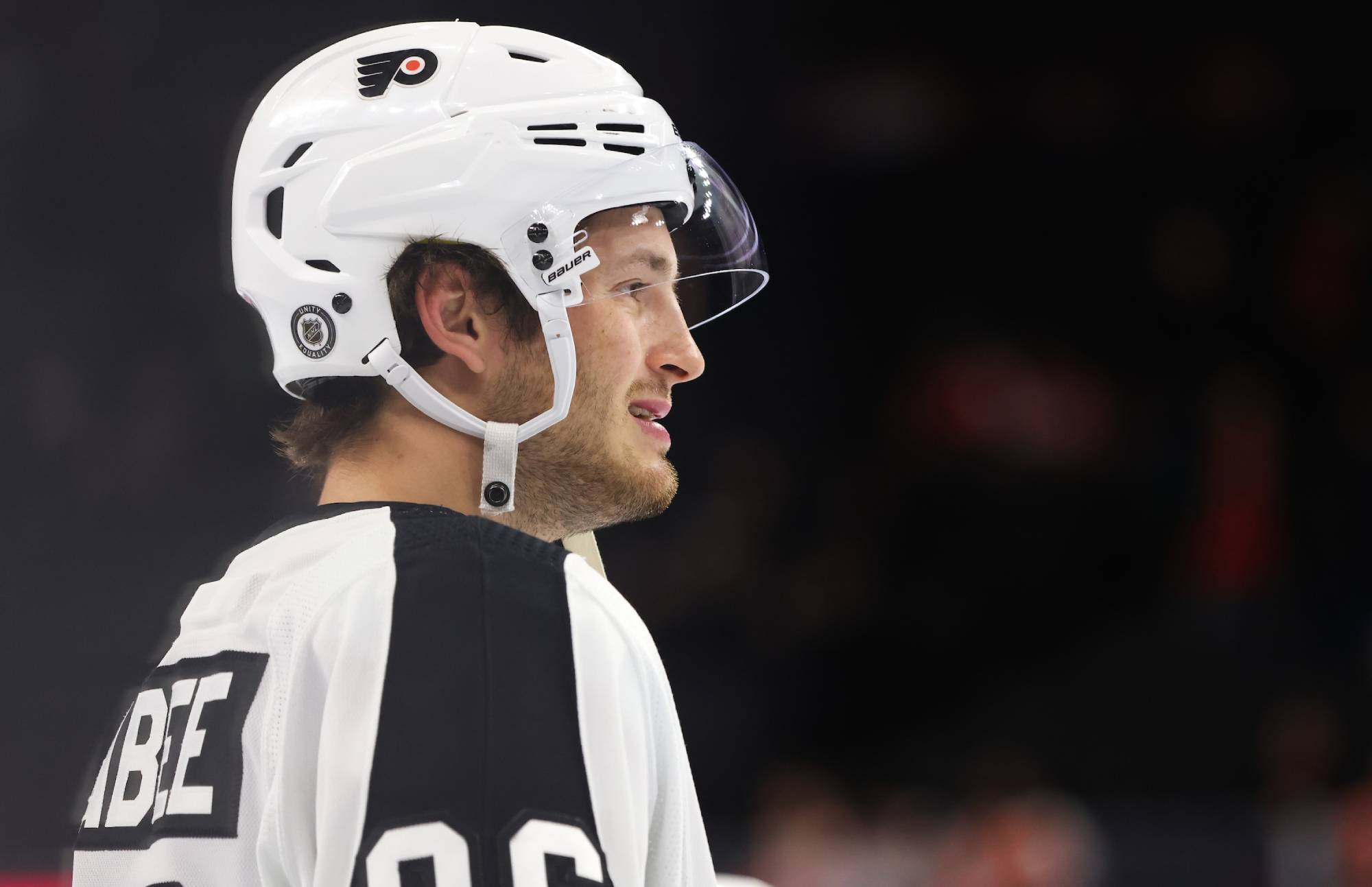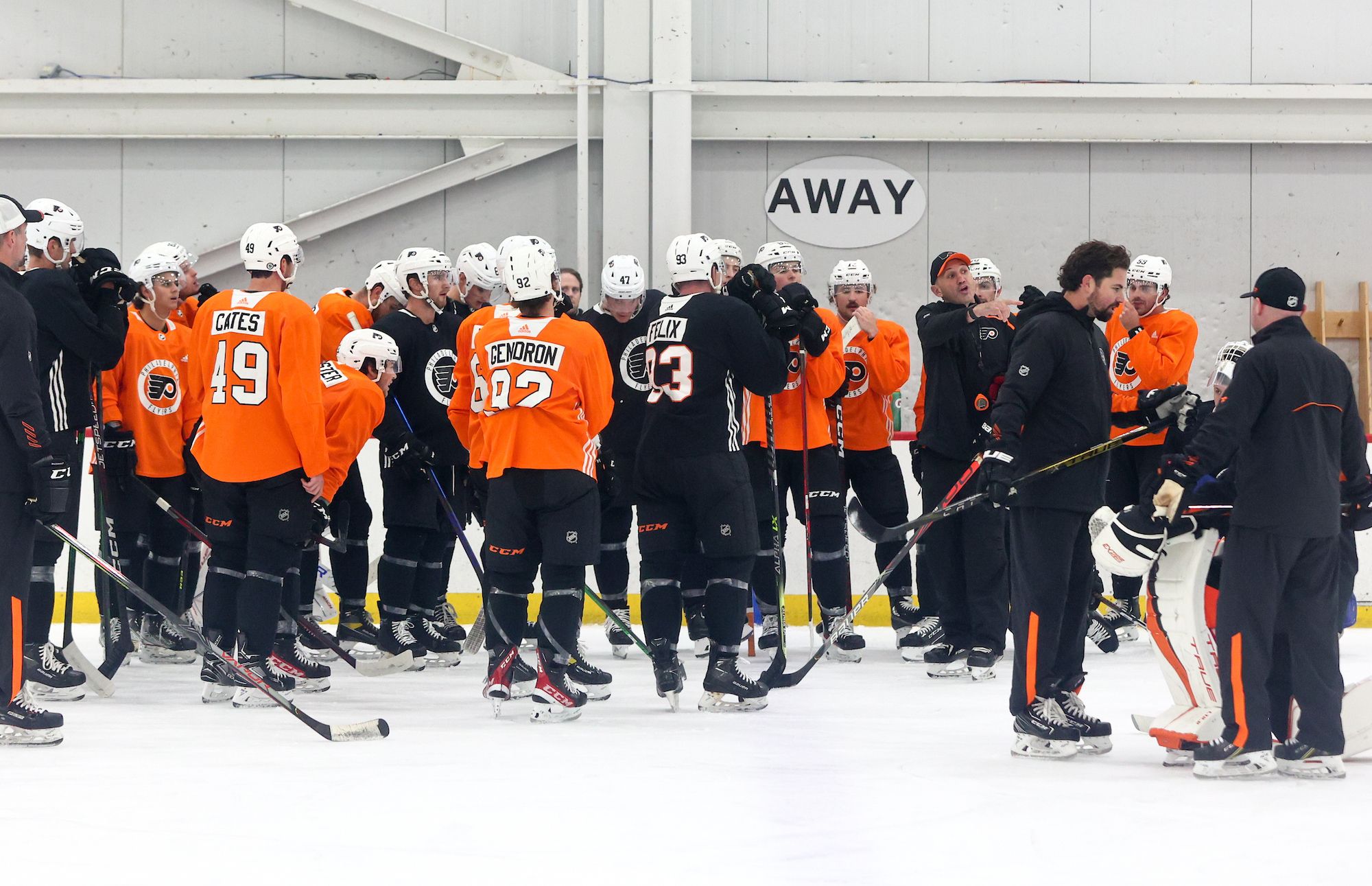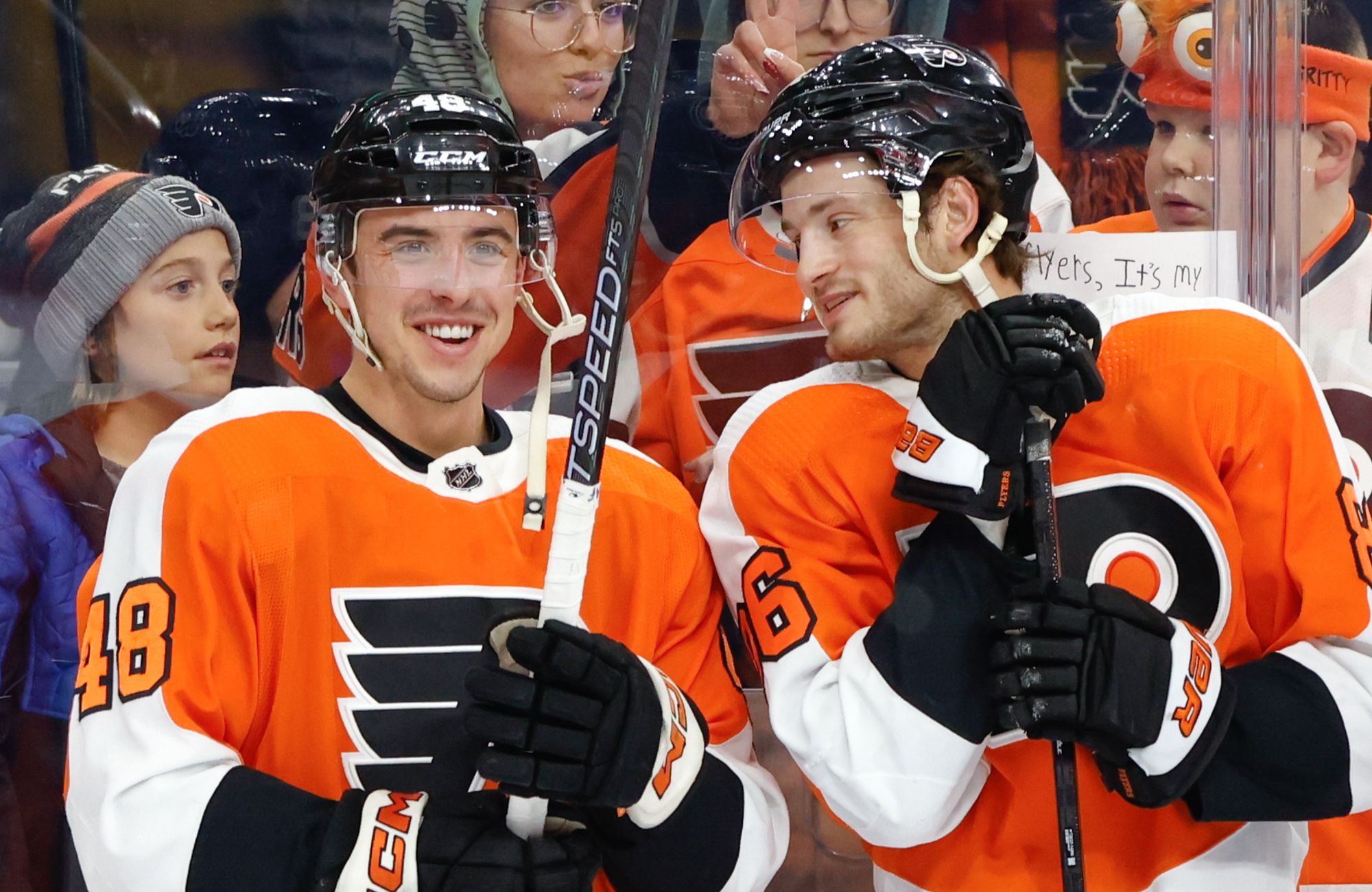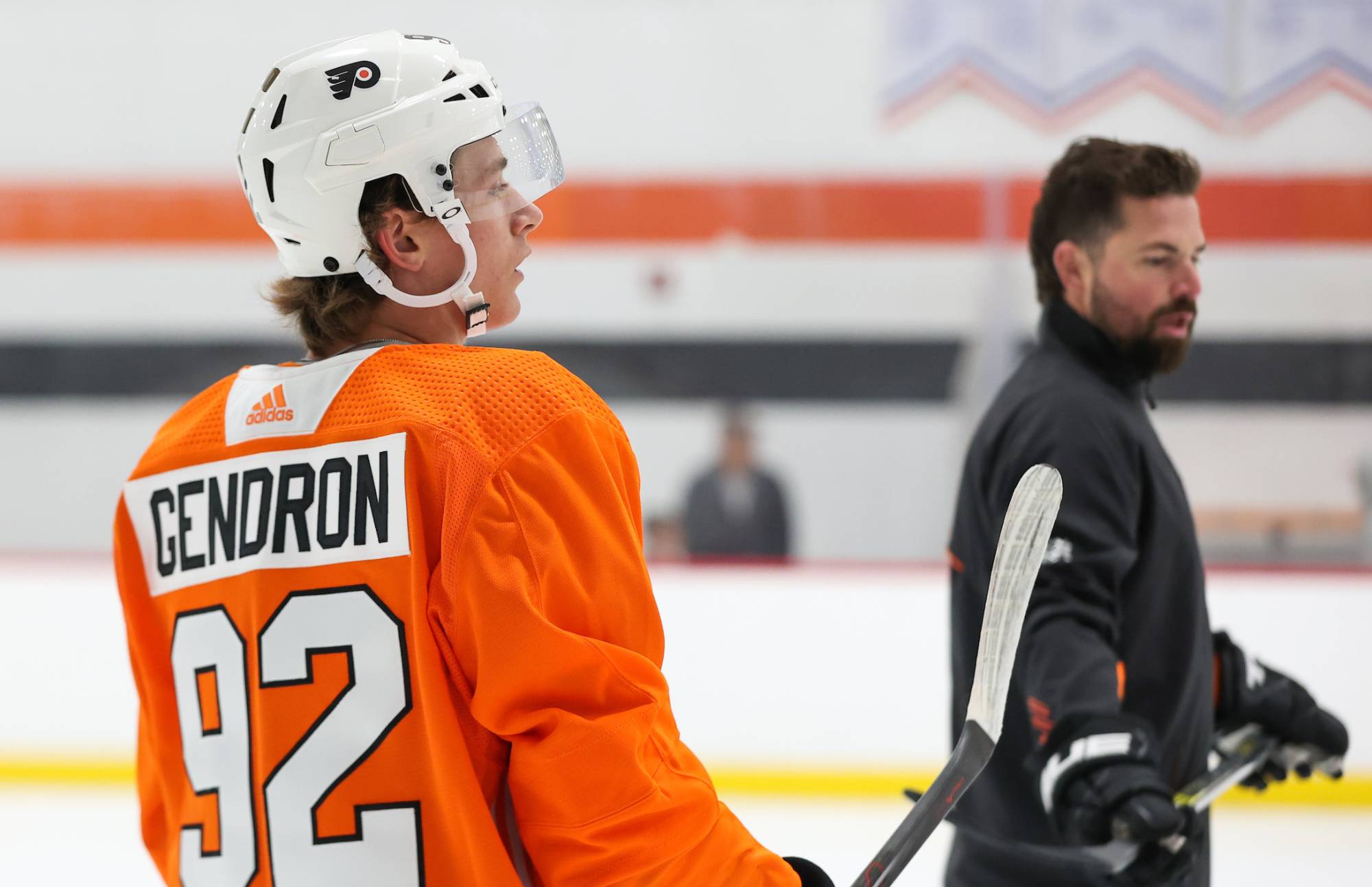Travis Konecny is coming off the best season of his career: he cracked 30 goals for the first time, tied his season high 61 points, and saw more ice time than ever. He became a penalty kill threat, got in a notoriously prickly coach’s good graces, and proved his 2019-20 breakout wasn’t a fluke. Despite not getting an All Star nod, his point-per-game play undoubtedly made him the Flyers MVP in the 2022-23 season, as well as the most fun player to watch.
All that has also made Konecny the Flyers’ most valuable trade chip. It’s left him and the rebuilding team in a bit of a conundrum: he could be traded for a haul of picks/prospects (his team-friendly contract comes in handy here), but he’s also not quite old enough to not fit the rebuild timeline. To paraphrase Shakespeare: to trade or not to trade, that is the question. So what’s the best course of action?
I’ve gone back and forth on this question a lot. If you’d asked me a few months ago, I would’ve traded TK – for the right return – without hesitation. Maybe the summer heat’s getting to my head, but I’ve softened on this: there might be more value in keeping him.
First of all, Konecny is young enough that, if the rebuild goes well over the next three or four years, he could still be a productive second line forward that can play either wing. In an ideal world, he ages similarly to Brad Marchand: a pesky, productive player into his mid-30s; best case scenario is Konecny holds a top-six role the whole time; more likely is he ages gracefully into a middle-six threat. TK’s next contract would kick in when he’s 28 so, assuming a term of six or seven years would take him through his age 34/35 season, the Flyers would still be getting some prime Travis Konecny before players generally fall off a cliff.
The cost of Konecny’s next contract could be an issue though and, if he’s unwilling to take a small hometown discount to make it worth the Flyers’ while (think around $7 million AAV, accounting for cap increases), that would be reason to move on. However, when it comes time to make a playoff push in 2027, and the Flyers end up overpaying for a winger in free agency or trade – wouldn’t it have made sense to just keep TK in the first place?
Konecny’s also been one of the poster children on the current roster for buy-in to Tortorella’s demanding coaching style. What message would it send to younger players that the one guy who not only took the coach’s criticisms to heart, but flourished, gets immediately traded? If “character” and “culture” are so critical to the Flyers front office, keeping TK on the team seems a given.
Finally, there’s the ultimate question: what kind of return could Travis Konecny get in a trade? A-level prospects and high draft picks could be valuable, sure–but are those unknowns better than a player you already know? Does the value of those prospects and picks outweigh having an established player on the roster who could be still be useful in the pursuit of a Stanley Cup? It’s a gamble either way, but the safer bet might be keeping the player you already have a feel for.
Of course, all of this is predicated on the idea that Travis Konecny isn’t going to regress over the next season or two–if that happens, then this summer was the time to sell high. The future is inherently unknowable, though, and while the Flyers do need to take some risks to have a successful rebuild, there can still be value in playing it safe. With the right contract and the right role, keeping Travis Konecny might be one of those safe options.






